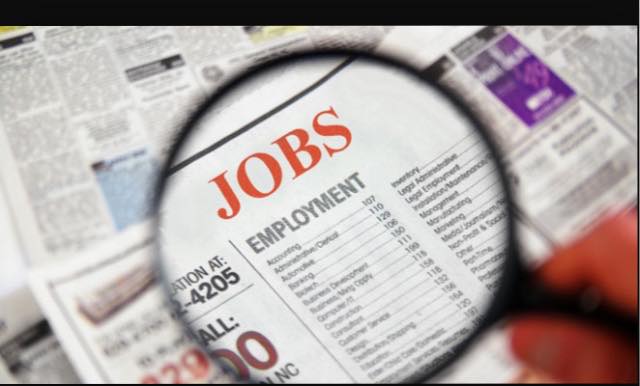Economy
Fitch Ratings: Mass. jobless picture worse than it appears

By Colin A. Young
There is more to the Massachusetts labor market than meets the eye, analysts at Fitch Ratings said this week.
In November, the Massachusetts jobless rate dropped to 6.7 percent and mirrored the national unemployment rate after several months of exceeding the country’s average. But if people who have exited the labor force entirely — meaning they are unemployed but not actively seeking work — are factored in, Massachusetts would have the highest unemployment rate in the country at around 13 percent, the credit rating agency said.
“Labor force exits are still significant, compounding the negative fiscal effects of job losses. Those who have exited the labor force are typically not generating taxable income or purchasing as many taxable goods and services and are also more likely to require publicly funded social services, such as Medicaid,” the Fitch analysts led by Senior Director Olu Sonola wrote. “Employment recovery is a key factor driving overall economic and tax revenue recovery for states. The pace of the recovery for each state depends in part on how quickly exited workers are able to return to the labor force.”
While Massachusetts’ official unemployment rate improved in November, Fitch said its own adjusted unemployment rate for the state got worse, “implying deeper labor market challenges.” Massachusetts, Iowa and Vermont are the only three states that have a Fitch-adjusted jobless rate that is five percentage points or more higher than the official number.
The scale of labor market exits was becoming evident in November as the federal Bureau of Labor Statistics estimated that the Massachusetts labor force had decreased by almost 44,000 people in October. The state’s labor force participation rate, which reflects the percentage of working-age adults who are either employed or seeking a job, dropped 0.8 percentage points in November to 63.1 percent even as the overall unemployment rate improved.
The arrival of the COVID-19 pandemic and the ongoing economic restrictions put in place to mitigate the spread of the virus tore giant holes into the labor market in Massachusetts and across the country. But Massachusetts is now lagging most other states when it comes to recovering some of those lost jobs.
By the end of November, the median state jobs recovery since April, which Fitch said was “the nadir of 2020 job losses,” was 59 percent. But Massachusetts had recovered fewer than half of the jobs, Fitch said.
The others on the list of states that have recovered less than half of the jobs lost at the peak of the pandemic, Fitch said, are Minnesota, Oklahoma, Delaware, New York, Wyoming, New Hampshire, Illinois, California, New Mexico, North Dakota and Hawaii.
“Since this summer, the rate of recovery gradually slowed through the fall and a reversal of prior employment gains for certain states began occurring in November,” Fitch wrote. “Employment growth is expected to slow even further or reverse course across states in the next few months with lockdowns in response to the surge in coronavirus cases and hospitalizations.”
Job losses in the leisure and hospitality industries continue to lead the way, representing 35 percent of all job losses in November despite making up just 11 percent of total pre-pandemic employment. The leisure, hospitality and tourism industry employed 376,000 workers and was the third-largest industry in Massachusetts as of 2018, according to a report from the University of Massachusetts Donahue Institute and Boston Foundation.
“These sectors continue to show significant signs of weakness, given government travel restrictions and consumer reluctance to travel. Fitch anticipates sector weakness is likely to persist for several years,” the rating agency said.
Massachusetts labor officials are expected to announce the monthly state-level unemployment rate and jobs figures for December on Friday.
-

 Community7 years ago
Community7 years agoNational Shrine of La Salette Festival of Lights 2017 set to begin
-

 Community6 years ago
Community6 years agoMassachusetts State Police looking for good home for retired dogs
-

 Crime6 years ago
Crime6 years agoFall River ranked most dangerous city in Massachusetts according to report
-

 latest7 years ago
latest7 years agoDurfee student allegedly overdoses on marijuana
-

 Community6 years ago
Community6 years agoVideo of Fall River Police goes viral
-

 Causes6 years ago
Causes6 years agoMissing Fall River woman found deceased
-

 Crime6 years ago
Crime6 years agoFall River Police add names to most wanted list
-

 Causes6 years ago
Causes6 years agoFall River teenager reported missing has been found




